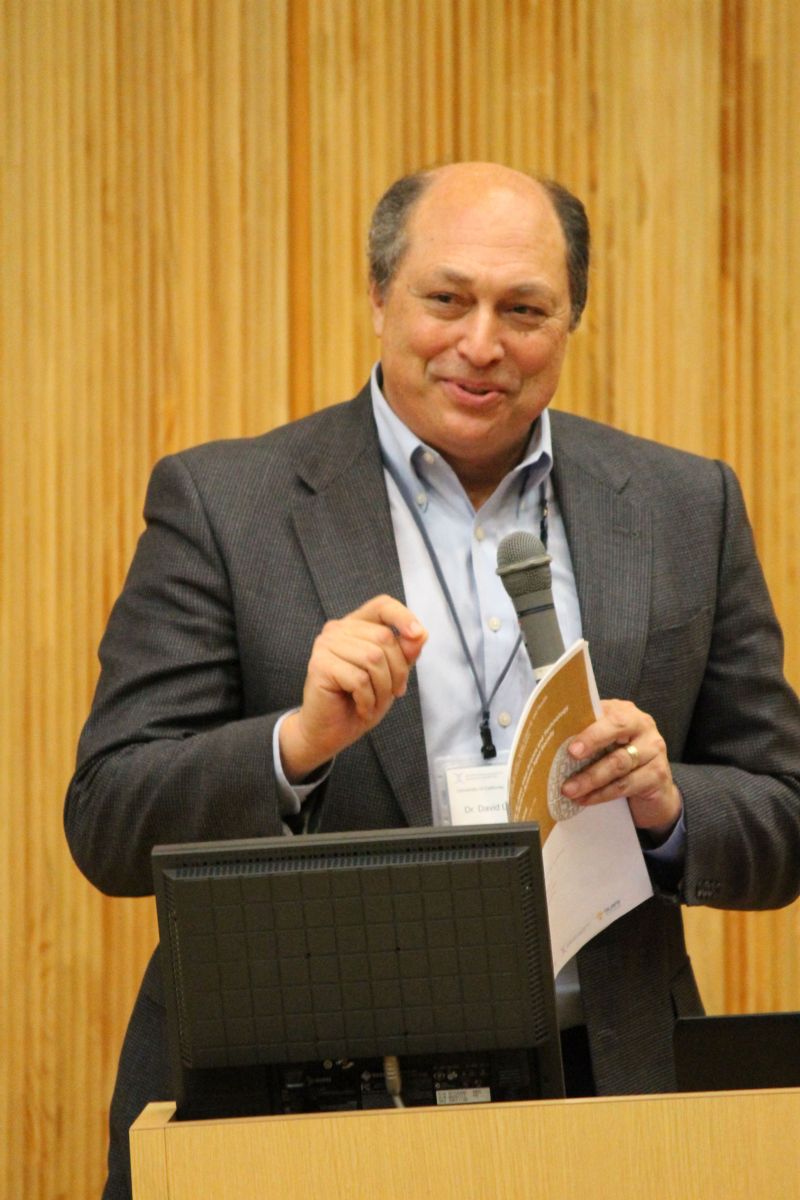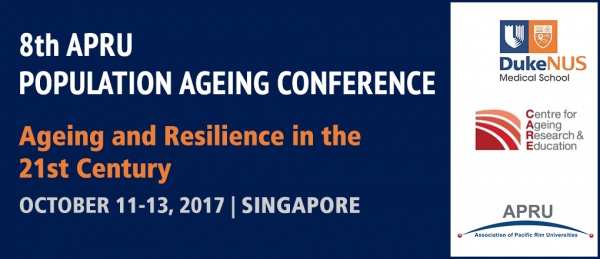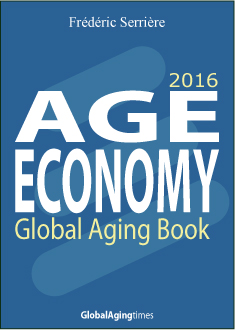Australia’s Future of Aged Care Summit – 29-31th August 2017
As the ongoing aged care reform is changing the sector landscape and putting the consumer in focus, providers are struggling with the implications of the reform.
The new open and consumer driven market is immensely increasing industry competition and changing previous funding models. Organisations in the aged care sector are for the first time having to compete for customers, restructure business models and implement alternative income streams, in order to remain financially sustainable and drive business viability.
Australia’s Future of Aged Care Summit provides attendees with the tools to remain financially sustainable in this new competitive climate. Attendees will gain practical strategies on how to attract and retain customers, diversify revenue streams and successfully transform their businesses into commercial enterprises.
Cognitive Decline and Aging – September 1-8, 2017
The interface between cognitive aging that might be considered normal and the early stages of AD has recently attracted much attention from neuroscientists and clinicians. That interface and whether one is likely to progress from cognitive decline to AD is the critical question. The Advanced Course will focus primarily on the events that lead to cognitive decline in the absence of AD, and mechanisms that might be relevant to both conditions will be thoroughly analyzed. While it is quite clear that the dementia of AD results from neuron death, particularly in circuits that mediate learning and memory, it is equally clear that age-related cognitive decline does not result from neuron death and is thus not a mild form of AD. Age-related cognitive decline appears to result primarily from synaptic alterations and other changes that affect neuronal communication in circuits mediating learning and memory that are still intact. These circuits must retain synaptic health in order to function properly, and certain events associated with aging lead to declining synaptic health.
Coordinator:John H. Morrison, University of California, Davis, USA
Faculty: Roberta Brinton, University of Southern California, Los Angeles, USA; Mark Baxter, Icahn School of Medicine at Mount Sinai, New York, USA; Tara Spires-Jones, University of Edinburgh, UK; Jennifer Bizon, University of Florida, Gainesville, USA; Naftali Raz, Wayne State University, Detroit, USA; Ulman Lindenberger, Max Planck Institute for Human Development, Berlin, Germany
8th APRU Population Aging Conference – October 11-13, 2017, Singapore
The world is aging. The number of people aged 65 or above is projected to triple by mid of this century, from 531 million in 2010 to 1.5 billion in 2050.
By the middle of the 21st century, most countries would be trading their young for the old as the share of their population aged 65 or above surpasses those below 15. This demographic shift is accompanied by wider changes in the society including amongst others continuing low fertility rates, late marriages, preference for singlehood and migration.
Academics and policy makers recognize the need for self-reliance of older adults as family sizes shrink and longer lives challenge financial and social adaptations. Successful adaptation to aging requires the resilience of the individual, family, and society. With this conference we aim to explore different ways of defining and measuring resilience as well as ways to enhance resilience at all levels including physical, psychological and social in older adults and their families. Innovative measures at the policy and program levels will be featured.
Themes explored in the conference include
1. What is resilience – explorations of the different types of resilience
2. How can or should resilience be measured
3. What are the factors that impact on resilience
4. What are the factors associated with resilience
5. How can resilience be promoted
View Conference Agenda here
Call for Abstracts
Share your research findings and increase the visibility and impact of your research.
Key dates for abstract submission:
– Call for Abstracts is now open
– June 30, 2017: Abstract submission closes
– July 31, 2017: Notification of authors of shortlisted abstracts
– September 1, 2017: Submission of slides
Email your abstract submission which is not longer than 300 words to care@duke-nus.edu.sg.
Conference Registration will soon open!
For enquiries about the 2017 APRU Population Aging Conference, please contact: care@duke-nus.edu.sg
2017 Global Ageing Conference – 18-21 September 2017
The Global Ageing Network is proud to be hosting our 2017 Global Ageing Conference in partnership with CURAVIVA, 18-21 September 2017 at the Montreux Music and Convention Center in Montreux, Switzerland.
Switzerland tops HelpAge International’s Global Ageing Index as the best place in the world to grow old. It is the perfect setting for our global ageing community to progress efforts in improving the lives of elders worldwide.
Ministerial Conference on Ageing: A Sustainable Society for All Ages: Realizing the potential of living longer – 21/09/2017 – 22/09/2017
The Portuguese Government under the coordination of the Ministry of Labour, Solidarity and Social Security, is pleased to announce the UNECE Ministerial Conference on Ageing 2017 on the theme A Sustainable Society for All Ages: Realizing the potential of living longer to be held in Lisbon, on the 21st and the 22nd of September 2017.
Portugal, as a member of the United Nations Economic Commission for EUROPE (UNECE) engaged in promoting active ageing policy in all areas, is proud to hold this conference that will gather Ministers from the UNECE member States but also from the Portuguese Speaking Countries, as well as representatives of European and International organizations and non-governmental organizations and prominent experts and scientists, from across the UNECE region to take stock and evaluate the implementation of the MIPAA/RIS since the last Ministerial Conference in Vienna in 2012.
Ministerial and expert panels will deal with a broad range of topics including the promotion of longer working life, the non-discrimination and social inclusion of older persons, the creation of an enabling environment for health as well as independence and ageing in dignity. The discussions will also include representatives from civil society and the scientific community. The Conference will end with the adoption of the Lisbon Ministerial Declaration 2017 on the priorities of activities for the next five years until 2022.
Demography, Ageing and Health – 26-28 September 2017



The Emerging Researchers Conference will provide an opportunity for graduate students and postdoctoral researchers to network and present research to an international research community. The conference will provide a key opportunity to disseminate among a growing international research community drawn from Europe, Africa, Asia, North America and Australia.
The Conference will combine international keynote speakers with themed sessions:
- Biology and Ageing
- Cognition and the Brain
- Changing demographic and socio-economic environments and ageing
- Technology and ageing
Keynote Speakers
- Dr David Lindeman, University of California Berkley – Keynote on Technology
- Professor Kaarin Anstey, Australian National University – Keynote on Cognition and the Brain
- Professor Lena Rasmussen, University of Copenhagen – Keynote on Biology of Ageing
- Dr Xiaoying Zheng, Beijing University – Keynote on Demography of Ageing

.jpg)

.jpg)
Conference Programme
Conference Flyer
Key dates
- Deadline for paper abstract submission: 24th March 2017
- Deadline for poster presentation submission: 31st May 2017
- Full programme available: April 2017
- To guarantee a place please register by 31 May; registration closes 28 July
Guidelines for the Submission of Abstracts
- Name and affiliation
- Themed session
- Abstracts word limit is 250 words
Abstracts should be sent as an attachment and emailed to administrator@ageing.ox.ac.uk
Fees
- Delegate residential package – £465
- Delegate non-residential package – £150
Registration fees include refreshments, lunches, and a conference dinner (and 3 nights’ accommodation in residential package). Bursaries to support paper and poster presentations will be available on competitive basis: for BSG members please contact Dr Theodore Coscotheodore.cosco@ageing.ox.ac.uk; for non-BSG members please contact administrator@ageing.ox.ac.uk
Online Registration
We are grateful to the International Alliance of Research Universities and colleagues from:
| University of Cambridge
University of Cape Town University of California, Berkeley Peking University National University of Singapore |
Yale University
Australian National University ETH Zurich University of Copenhagen University of Tokyo |
International Long-Term Care Conference – 27-29 September 2017
nternational Long-Term Care Conference is organised for professionals who work for chronically ill, disabled and elderly people – management and staff of care centres.
The events related to the Conference go back to 1998, which marked the beginning of a new health care sector in Poland focused on the care of dependent people, that is, long-term care. Besides obvious financial shortages, the major problem was a lack of competent staff, mainly nurses who could offer professional assistance. Lacking as well were Polish models. There was an urgent need to educate people in this field and to offer opportunities for the exchange of experiences, foreign included, and to start discussions on the shape of long-term care in the future. At that time we started to organise regular meetings for the leaders in this field, that is, both practitioners (physicians, nurses, physiotherapists, social workers) and representatives of central and local governments as well as payers for such services.
Since the first Long-Term Care Conference the number of participants has grown tenfold – from 100 participants in 1998 to more than 1,000 in 2015. The problems discussed are of interest not only to Polish professionals. The conference has been international since 1999. To date we have hosted representatives of almost all European countries, both as lecturers and participants.
A high substantive level of the Conference is guaranteed by regular cooperation with the leaders and founders of long-term care in Poland and abroad, including national consultants and opinion makers operating in this sector.
Every year we are visited by experts in geriatrics, nursery, physiotherapy and representatives of many other fields, who work with each other to ensure the highest possible level of care for chronically ill patients.
Second international seminar on the Active Ageing Index – 27/28 september 2017
Active ageing is a multidimensional concept referring to a situation where people participate in the formal labour market, engage in unpaid productive activities (such as care provision to family members and volunteering), and live healthy, independent and secure lives as they age. Active ageing policies thus need to address a variety of dimensions: enable possibilities for longer working life, ensure social involvement, encourage healthy lifestyles, and provide opportunities for independent living for both men and women. Monitoring such policies and their implementation requires a comprehensive tool that encompasses the multitude of aspects of active ageing.
The Active Ageing Index (AAI), first developed during the European Year for Active Ageing and Solidarity between Generations in 2012, offers a multi-faceted and flexible framework that provides evidence for informed decision-making, development, and monitoring of policies and strategies on ageing at national and subnational levels. It measures how much of older men and women’s potential to contribute to the economy and society is realized and to what extent their working and living environment enables them.
The index is constructed from 22 individual indicators that are disaggregated by sex and grouped into four domains. Detailed information on AAI can be found here. In 2015, the United Nations Economic Commission for Europe (UNECE), the European Commission’s Directorate-General for Employment, Social Affairs and Inclusion (DG EMPL), and the Oxford Institute of Population Ageing ran a science-meet-policy international seminar. At the seminar, researchers from across the globe who had answered a 2014 call for papers presented and debated their work (here). Some of the best research efforts were also published in the Journal of Population Ageing, while others have been disseminated widely via other channels, including a book to be issued in 2017.1
On the basis of the 2015 successful experience, UNECE, the European Commission’s DG EMPL, the University of the Basque Country, the Oxford Institute of Population Ageing, with the support of the Government of Biscay (Spain), are organising a Second International Seminar on the Active Ageing Index in Bilbao in September 2018.The seminar aims to bring together researchers, civil society representatives, policymakers and other stakeholders. It will provide a multidisciplinary forum for those interested in the use of AAI to enhance the knowledge about ageing and older people and lead to the development of better policies. The seminar will be dedicated to the studies focusing on the use of AAI to identify ways to improve active ageing outcomes through appropriate policy measures at different levels.
27th Alzheimer Europe Conference Care today – 2 to 4 October 2017
Message of the organisator
We are very happy to invite you to the 27th Alzheimer Europe Conference which will be organised in collaboration with Deutsche Alzheimer Gesellschaft in Berlin from 2 to 4 October 2017.
This year’s conference will be held under the motto “Care today, cure tomorrow”. We want to focus on the exciting research aiming at finding better treatments and interventions to prevent or delay the onset of dementia, whilst at the same time providing concrete solutions to improve the quality of life, support and care of people currently living with the condition.
As in previous years, we hope that the 2017 conference will be a great networking opportunity which will bring together people with dementia, their carers, volunteers and staff of Alzheimer associations, policy makers, health and social care professionals, researchers, academics and industry representatives from all over Europe and beyond.
We have identified a number of key topics for which we would like participants to submit abstracts. We are confident that we will be able to continue and build on the success of previous years where we received over 300 abstracts for oral and poster presentations. The call for abstracts covers four broad fields (Medical aspects, care, living with dementia and ethical/legal issues), as we want to promote a multi-disciplinary and multi-professional approach to dementia.
As organisers, we are deeply grateful to the health programme of the European Union which supports the activities of Alzheimer Europe in general and this Annual Conference in particular. This support makes it possible for us to provide highly competitive registration rates for a truly unique conference.
We look forward to welcoming you in Berlin from 2 and 4 October.
AAL Forum 2017 – 2-4 OCTOBER 2017
BRIDGING THE GAPS BETWEEN TECHNOLOGY SOLUTIONS AND AGEING WELL.
WHAT CAN YOU DO?
The AAL Forum is the place to be for the European community dealing with technology and active ageing. It brings together all the stakeholders in Active and Assisted Living domain, and this year will take place in Coimbra, in the Centro Region of Portugal. This 2017 event goes under the title “Bridging the gaps between technology solutions and ageing well. What can YOU do?”; it aims at bringing together all the stakeholders of the active assisted domain in Europe in order to investigate how to bring closer demand and offer and at offering a proactive arena for discussion to all the actors involved.
The AAL Forum is an annual showcase and the largest event in the Active and Assisted Living field, which aims to bring together policy makers, ICT developers, manufacturers, healthcare professionals, commissioners, companies, venture companies, technologists, academics, designers, caregivers and, of course, senior citizens, to learn about the latest developments in this powerful area of research.
This forum will provide an excellent opportunity to network within the AAL community and to discuss issues around AAL within workshops, keynote presentations and a large exhibition area. The exhibition area at the forum showcases the latest innovative and interactive ICT solutions (developed and under development) and poster sessions providing valuable information about what’s available on the market. For policy makers and health professionals, these solutions have the potential to transform the lives of the older adults they are responsible for.
It will also have a matchmaking event, that will brings together suitable potential business partners to talk about their work and strike up real collaborations.
This year will take place in Coimbra (in the Centro Region of Portugal). This region is a European reference site for Active and Healthy Ageing (EIP-AHA) recognised by the European Union (3 stars reference site), which means that senior citizens have access to better social services and healthcare, as well as new innovative products, services and tools in the AHA field.
The Forum 2017 is expected to attract more than 750 participants and 50 stands from across Europe. This event offers an excellent opportunity to network and gives participants a great platform to exchange experiences and ideas. Interested investors can use the opportunity to find products and services with market potential.


